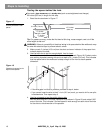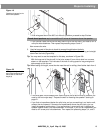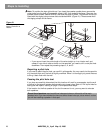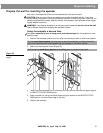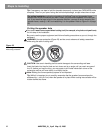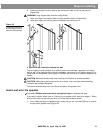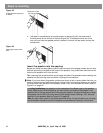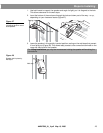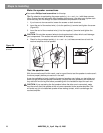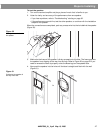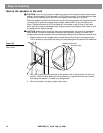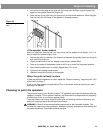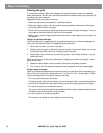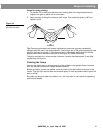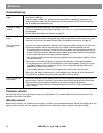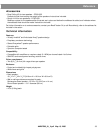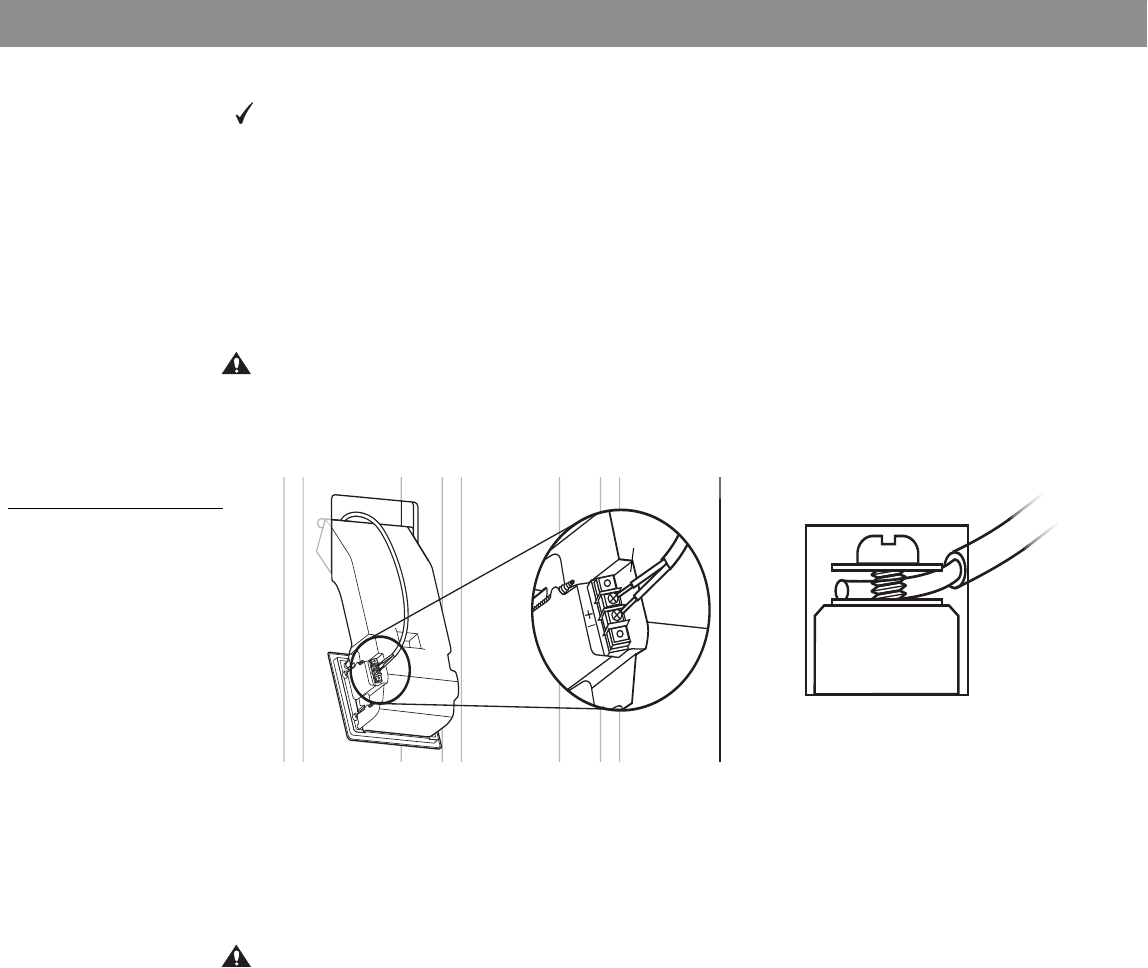
26
Steps to Installing
Make the speaker connections
You need a Phillips-head screwdriver for this step.
Tip: Pay attention to maintaining the proper polarity (+ to + and – to –) with these connec-
tions. An error here will adversely affect speaker performance. Also be sure to tighten each
screw securely, but not enough to cause undesirable compression of the wire.
1. If you have not done so earlier, loosen the screws on both terminals.
2. Insert the end of the marked wire (+) into the positive (+) terminal and tighten the screw
(Figure 29).
3. Insert the end of the unmarked wire (–) into the negative (–) terminal and tighten the
screw.
CAUTION: Do not allow exposed wires to brush against each other, which could damage
your components. Trim excess wire and reinsert as necessary.
4. Check for the consistent polarity (+ to + and – to –) of these connections at both the
receiver/amplifier and the speaker.
Figure 29
Attaching wires to the
terminals
Test the speaker now
With the connections still within reach, now is a good time to test the speaker to make sure it
functions properly before you secure it in the wall.
It may be preferable to begin installing the second speaker now, before you test either one.
When you get the second speaker connected, you can test both speakers, and make sure
they are both functioning fine before proceeding with the installation steps for each one.
CAUTION: If you are testing the first speaker before the other one is connected, make
sure the wire to that first speaker is the only one connected to the receiver/amplifier. This
will avoid any risk of unattached speaker wires making contact, which can damage the
receiver/amplifier.
+
AM267565_01_V.pdf May 13, 2003



